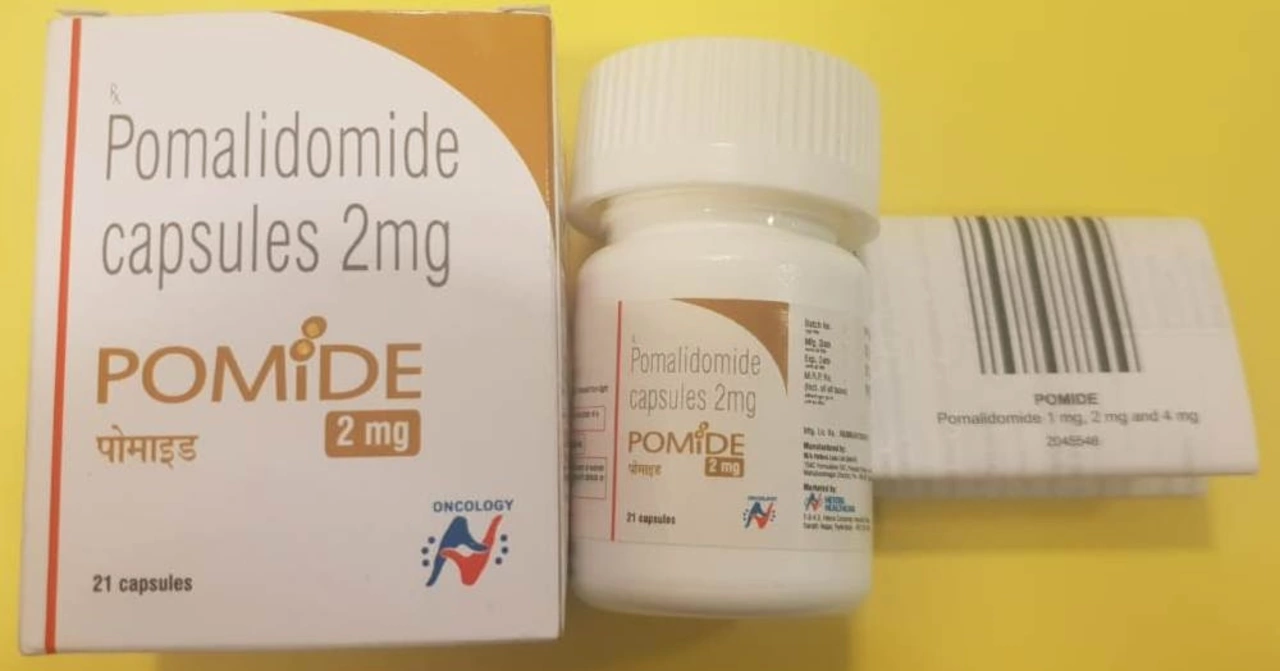Pomalidomide — what it is and who needs it
Pomalidomide (brand name Pomalyst) is a prescription medicine used mainly for people with relapsed or refractory multiple myeloma. It’s an immunomodulatory drug — it helps your immune system attack cancer cells and can slow tumor growth. If your doctor mentions pomalidomide, they usually pair it with low-dose steroids like dexamethasone or other agents to boost the effect.
Quick facts & common uses
Typical adult dosing starts at 4 mg once daily on days 1–21 of a 28‑day cycle, then a 7‑day break. Doctors often reduce the dose if blood counts drop or side effects show up. Pomalidomide is for people who have already tried other myeloma treatments and need another option.
Key things to know: it’s not a pill you buy over the counter — you need a prescription and must follow strict safety rules because the drug can cause serious birth defects. In many countries a risk‑management program (REMS) controls how it’s prescribed and dispensed.
Safety, monitoring & practical tips
Side effects to watch for: low white blood cells (neutropenia), low platelets, anemia, fatigue, constipation, and sometimes nerve pain. Pomalidomide raises the risk of blood clots (deep vein thrombosis or pulmonary embolism). Your doctor may recommend aspirin or stronger blood thinners depending on your risk.
Before and during treatment you’ll get regular blood tests — usually weekly at first, then less often if counts are stable. Women who can get pregnant must use effective contraception and take regular pregnancy tests. Men must use condoms and avoid fathering a child while on treatment. If you’re pregnant or planning pregnancy, pomalidomide is not an option.
Drug interactions matter. Pomalidomide is processed in the body by liver enzymes, so some medicines (strong CYP inhibitors or inducers) can change its levels. Tell your doctor about all prescriptions, supplements, and herbal products — grapefruit and some antifungals or antibiotics can matter.
How to take it: swallow capsules whole at about the same time each day, with or without food. Don’t crush or chew. If you miss a dose, follow your prescriber’s advice — don’t double up without approval.
Practical advice: keep a medication calendar, report any fever, unusual bruising, sudden shortness of breath, or severe weakness right away. Carry ID noting you’re on a teratogenic medication in case of emergencies.
Finally, if cost or access is a concern, ask your care team about patient support programs, insurance prior authorization, or clinical trials. Never buy pomalidomide from a source that doesn’t require a prescription — safety and authenticity matter.
If you have specific questions about dosing, side effects, or pregnancy precautions, talk to your oncologist or pharmacist. They’ll tailor advice to your situation.

The role of pomalidomide in combination therapy for cancer treatment
I recently came across an interesting topic about the role of pomalidomide in combination therapy for cancer treatment. Pomalidomide is an immunomodulatory drug that helps in boosting the immune system to fight cancer cells effectively. When used in combination with other therapies, it has shown promising results in treating various types of cancer, particularly multiple myeloma. This approach not only enhances the effectiveness of the treatment but also reduces the side effects caused by other drugs. I believe this innovative combination therapy is quite promising and could potentially revolutionize cancer treatment in the future.
More Detail